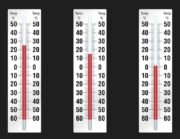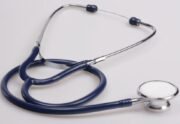As an experienced nutritionist, I understand the importance of choosing the right foods when dealing with diarrhea. It’s crucial to consume foods that are gentle on the digestive system and promote a speedy recovery. This article will explore whether ramen, a popular and comforting food, is a suitable option during such times. Ramen and diarrhea is a topic that often comes up when discussing diet choices in this situation.
So, is ramen good for diarrhea? The answer to this question is not straightforward. While ramen can provide some essential nutrients and comfort during diarrhea, it may also contain ingredients that could potentially worsen the condition. Moreover, the high sodium content in ramen might lead to dehydration, which is already a concern during diarrhea. However, by making some modifications to your ramen preparation, you can make it more suitable for consumption during diarrhea. Read on to learn more about the relationship between ramen and diarrhea, and how to make informed decisions about your diet during this time.
What is Ramen and its Ingredients?
Ramen is a popular Japanese dish that consists of Chinese-style wheat noodles served in a meat or fish-based broth, often flavored with soy sauce or miso. The dish is typically garnished with ingredients such as sliced pork, dried seaweed, green onions, and sometimes even corn or butter. Ramen has gained immense popularity worldwide due to its delicious taste and the comforting warmth it provides.
The primary ingredients in ramen are the noodles, broth, and toppings. Ramen noodles are made from wheat flour, water, salt, and kansui, an alkaline solution that gives the noodles their characteristic chewy texture and yellow color. The broth can be made from various types of meat or fish, with the most common being pork, chicken, or seafood. The flavorings added to the broth, such as soy sauce or miso, also play a significant role in determining the taste and complexity of the dish.
According to a 2019 study, the global ramen market was valued at $42.2 billion, showcasing its immense popularity and widespread appeal. With such a large fan base, it’s essential to understand the nutritional aspects of ramen, especially when considering its consumption during times of gastrointestinal distress, such as diarrhea.
The Connection Between Ramen and Diarrhea
When it comes to the relationship between ramen and diarrhea, there are several factors to consider. Ramen, as a comfort food, may provide some relief during diarrhea due to its warm broth and easily digestible noodles. However, certain ingredients in ramen could potentially exacerbate diarrhea symptoms or prolong the condition.
The high sodium content in ramen, primarily from the broth and flavorings, can lead to dehydration, which is already a concern during diarrhea. Dehydration can worsen diarrhea symptoms and make recovery more difficult. Additionally, the fatty content in some ramen broths, particularly those made from pork, may be challenging for the digestive system to process during diarrhea. This can result in increased discomfort and a longer recovery period.

Is Ramen Good for Diarrhea? A Comprehensive Guide
It’s important to note that not all ramen dishes will have the same effect on diarrhea. Some ingredients may be more beneficial than others, and individual tolerance levels can vary. By modifying the way you prepare ramen and paying close attention to the ingredients used, it’s possible to make this dish more suitable for consumption during diarrhea.
Pros and Cons of Consuming Ramen During Diarrhea
Consuming ramen during diarrhea has its advantages and disadvantages. On one hand, ramen can provide some essential nutrients and comfort due to its warm broth and easily digestible noodles. On the other hand, certain ingredients in ramen could potentially exacerbate diarrhea symptoms or prolong the condition.
Pros
- Easily digestible noodles: Ramen noodles are made from wheat flour, which is relatively easy for the digestive system to break down. This can be beneficial during diarrhea when the digestive system is already sensitive.
- Warm broth: The warm broth in ramen can be soothing and comforting for those experiencing diarrhea. It also helps with hydration, which is crucial during this time.
Cons
- High sodium content: The high sodium content in ramen, primarily from the broth and flavorings, can lead to dehydration, worsening diarrhea symptoms and making recovery more difficult.
- Fatty content: The fatty content in some ramen broths, particularly those made from pork, may be challenging for the digestive system to process during diarrhea, resulting in increased discomfort and a longer recovery period.
- Preservatives and additives: Instant ramen noodles often contain preservatives and additives that may contribute to digestive issues or exacerbate existing diarrhea symptoms.
While ramen can provide some relief during diarrhea, it’s essential to be mindful of the ingredients used and the potential drawbacks. By modifying the way you prepare ramen and paying close attention to its components, you can make this dish more suitable for consumption during diarrhea.
Alternative Foods to Eat When Experiencing Diarrhea
If ramen may not be the most suitable option for you during diarrhea, there are plenty of alternative foods that can provide nourishment and comfort without exacerbating your symptoms. Here is a list of alternative foods that are generally well-tolerated during diarrhea:
- Bananas: Rich in potassium, bananas can help replenish electrolytes lost during diarrhea. They also contain pectin, which may help to firm up loose stools.
- White rice: Easy to digest and low in fiber, white rice can help soothe the digestive system while providing some energy.
- Applesauce: Applesauce contains pectin and is gentle on the stomach, making it a good option for those experiencing diarrhea.
- Toast: Plain toast made from white bread is easy to digest and can help provide some sustenance during diarrhea.
- Clear broth: A warm, clear broth can help with hydration, provide electrolytes, and offer a comforting alternative to ramen.
- Crackers: Plain crackers can be a simple and easily digestible snack during diarrhea.
- Yogurt: Look for yogurt with live active cultures, as these probiotics can help restore balance to your gut flora and may aid in recovery from diarrhea.
- Ginger tea: Ginger has anti-inflammatory properties and can help soothe an upset stomach.
Incorporating these foods into your diet during diarrhea can help alleviate symptoms and support your body’s recovery process. Remember to stay hydrated and consult a healthcare professional if your symptoms persist or worsen.
How to Make Ramen More Suitable for Diarrhea
If you’re craving ramen during a bout of diarrhea but are worried about its potential effects on your condition, there are ways to modify the dish to make it more suitable. By adjusting the ingredients and preparation methods, you can create a version of ramen that is gentler on the digestive system and less likely to exacerbate diarrhea symptoms.
Here are some steps to make ramen more suitable for diarrhea:
- Choose a lighter broth: Opt for a clear chicken or vegetable broth instead of a fatty pork-based broth. This will help reduce the fat content and make the dish easier to digest.
- Reduce the sodium: Use low-sodium broth and flavorings or make your own broth from scratch to control the salt content. Too much sodium can worsen dehydration and electrolyte imbalances during diarrhea.
- Add easily digestible vegetables: Incorporate cooked vegetables such as carrots, spinach, or zucchini into the dish. These can provide essential nutrients without irritating the digestive system.
- Include lean protein: Add a source of lean protein, like poached chicken or tofu, to your ramen. Protein is essential for recovery and can help replenish lost nutrients.
- Skip the additives: Avoid instant ramen noodles containing MSG, artificial flavors, and preservatives. Instead, opt for fresh or dried noodles without these additives.
- Serve in smaller portions: Consuming smaller, more frequent meals can be easier on the digestive system during diarrhea. Serve your ramen in small portions to avoid overwhelming your stomach.
By following these steps, you can enjoy a comforting bowl of ramen that is more suitable for consumption during diarrhea. Remember to listen to your body and consult a healthcare professional if your symptoms persist or worsen.
When to Seek Medical Advice for Diarrhea
While diarrhea is often a temporary condition that resolves on its own, there are instances when it’s essential to seek medical advice. It is crucial to recognize the signs and symptoms that may indicate a more severe issue or a prolonged case of diarrhea requiring professional intervention.
If you experience any of the following symptoms, it’s vital to consult with a healthcare professional:
- Diarrhea lasting longer than three days
- Severe abdominal or rectal pain
- Bloody or black, tarry stools
- High fever (above 102°F or 38.9°C)
- Signs of dehydration, such as excessive thirst, dry mouth or skin, little or no urination, severe weakness, dizziness, or lightheadedness
In addition to these symptoms, individuals with compromised immune systems, young children, and the elderly should consult a healthcare professional if they experience diarrhea. These populations may be more susceptible to complications from diarrhea and may require prompt medical attention to ensure a safe and effective recovery.
Remember, it’s always better to err on the side of caution when it comes to your health. If you’re unsure whether your diarrhea warrants medical attention, don’t hesitate to reach out to a healthcare professional for advice and guidance.
Conclusion
To sum up, while ramen can be a comforting and convenient food choice during diarrhea, it’s essential to consider the potential drawbacks of consuming it in this condition. By modifying the ingredients and preparation methods, you can create a version of ramen that is more suitable for consumption during diarrhea. However, it is equally important to explore alternative foods that are gentle on the digestive system and can provide the necessary nutrients for recovery.
In the end, it’s crucial to listen to your body and recognize when to seek medical advice for diarrhea. By staying informed, making mindful choices, and seeking professional guidance when needed, you can navigate through the challenges of diarrhea and come out smiling on the other side.
Frequently Asked Questions
[faq-schema id=”1129″]
















